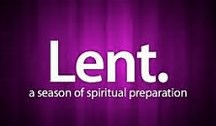| Sundays Best - A Pick of the Readings Second Reading: Romans 10:8-13 A reading from the letter of St Paul to the Romans. Scripture says: The word, that is the faith we proclaim, is very near to you, it is on your lips and in your heart. If your lips confess that Jesus is Lord and if you believe in your heart that God raised him from the dead, then you will be saved. By believing from the heart you are made righteous; by confessing with your lips you are saved. When scripture says: those who believe in him will have no cause for shame, it makes no distinction between Jew and Greek: all belong to the same Lord who is rich enough, however many ask for his help, for everyone who calls on the name of the Lord will be saved. | Diary Dates Coffee Mornings: From 10.00am every Tuesday throughout March. Services: Thur 14th Mar 9.30am Said Mass. (preceded by Stations of the the Cross at 9.15am) Sun 17th Mar 9.30am Parish Mass. (2nd Sunday in Lent). Meetings: Advance Notice - Annual General Parochial Church Council Wednesday 24th April. Future Events Bishops Visit Wednesday 27th March Bishop Pete is visiting the Deanery between 10.30am & 2.30pm. The event will be hosted by Penistone St Johns but there will be an opportunity for all Parishes to make presentation of their work. Concerts WW2 Brass: Thur 5th September. Themed Concert to coincide with the start of the Second World War. Will also include a pictorial presentation. More details to follow. Xmas Brass: Thur 12th December. Usual mix of seasonal and contemporary music. Both concerts will feature Worsbrough Brass. |

Is it possible to do a good thing for the wrong reason? The Spirit leads Jesus into the desert following his baptism at the Jordan. There we are told that for forty days and nights he fasted and prayed. We are told also that he was tempted – or “tested” as the original version of St Luke’s gospel puts it. Although Jesus might have wanted to go there for some quiet time and to concentrate on what lay ahead, it wasn’t going to be that simple. We are told that the devil presented him with a variety of alternative options. On the surface all of these seemed harmless enough. The problem was that none of those choices was consistent with Jesus’s true vocation.
There are all kinds of choices we can make that are inoffensive on their own terms. There’s the parent who gives his or her children treats in order to keep them quiet instead of as a reward for good behaviour. Or the person who does someone a good turn in order to procure a bigger favour in return. The politician who promises something that needed to be done anyway, but only because there is an electoral payback. All of these things are short-term, expedient courses of action. In the right context all of them would be fine, but the motives are the wrong ones and the integrity is lacking.
There were three ways in which Jesus was put to the test. The first was by the devil telling him to show that he was the Son of God by turning a stone into a loaf. For a hungry person who was missing the kind of meals that Jesus must have enjoyed in his home country, this must have been a very enticing proposition. He could have satisfied his own bodily hunger. Also, if the power of God working in him could have resulted in the poor being fed, then how could this be bad? But Jesus had not been sent to be a benefactor or a charity worker. He had not come to feed people for a time. The bread that he would give was to become spiritual food for the journey into eternal life. So Jesus, the true bread which had come down from heaven, refuses to follow the alternative plan that the devil puts before him. He was to follow God’s way. Instead of opening himself to further temptation by arguing about it, Jesus gives a very simple answer by quoting the words of Scripture: “Man does not live on bread alone.” The devil has no answer to this.
His second temptation came when he was standing on the heights. This was the lure of power and earthly glory. Jesus could have used his considerable talents to become a worldly leader. We are told numerous times during the accounts of his ministry that this was the role that people wanted to give him. But Jesus saw the corruption that so often accompanies earthly power: the desire to have power for its own sake, to seek personal glory and to want popularity rather than to make the right decisions. He was going to have nothing to do with these things. Again he quotes from Scripture: “You must worship the Lord your God, and serve him alone.” This is all that Jesus wanted to do: to put the will of God into action by loving and serving others. He was to pour himself out in service of others instead of serving himself.
The devil has a go for the third time. Now in Jerusalem, Jesus is led to stand on the parapet of the Temple and to be goaded into throwing himself off, knowing that God would keep him safe from harm. But Jesus had not been sent by God to perform cheap stunts in order to impress. His was the way of faith, trusting in God through all the hardships the world would throw at him. This was because he was living a fully human life rather than mocked-up version. In order to identify with each one of us, Jesus had to face struggles, mockery, the cruelty and indifference of other people, knowing that God overcomes all these things. There were to be no short cuts, no easy escape routes. This time the devil himself quotes scripture, but Jesus answers him immediately with a quotation of his own that challenges the misuse of those words: “You must not put the Lord your God to the test.” For the time being, Jesus had come through the test and we are told that the Tempter left him alone.
We are also told that he returned at the appointed time. We see tests throughout the ministry of Jesus: people wanting to make him king, for instance, and Simon Peter trying to talk him out of his journey to Calvary. Above all we see his final temptation on the Cross: to come down from the Cross and to save himself. He would refuse, just as he did in the desert, even though it would cost him his life. He put the love of God at the centre of his life and obeyed the will of God in all things.
What about us? In so many ways we can be tested. The more we try to remain true to our calling in life and the more, as Christians, we try to fashion our lives on the discipleship of Jesus, the more we can feel the pull to choose an easier and superficially more appealing way. But there is no substitute to finding our true calling in life and to remaining true to it. When faced with other choices, Jesus prayed to know his Father’s will more clearly. He returned to the words of Scripture to remind himself of what really matters in life. In the end “The World is not Enough”, to quote the title of a James Bond film. Only God can satisfy our hunger and our thirst. Only God can give us life, not only now, but for eternity. We may have struggles in this world, but like Jesus, when we make the right choices we find consolation and peace. As we prepare to receive the Bread of Life, let us listen to his voice and follow in his ways.


 RSS Feed
RSS Feed